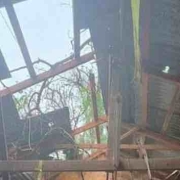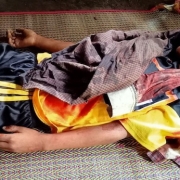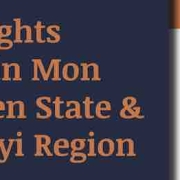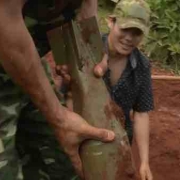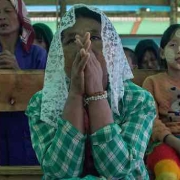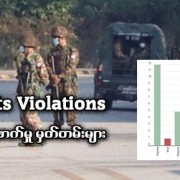Arakan Army Must Facilitate Access for International Aid, Monitors and Investigators to Northern Rakhine State
19 August 2024: The Arakan Army (AA) must ensure the protection of civilians in northern Rakhine state and uphold its obligations under international humanitarian law, says the Special Advisory Council for Myanmar (SAC-M).
An attack on Rohingya men, women and children on 5 August 2024 may have resulted in the deaths of up to 200 people, according to credible reports. The victims were attempting to escape violent conflict between the AA and Myanmar military in Maungdaw, northern Rakhine state, and cross the Naf River into Bangladesh.
Survivors and witnesses report bombs being dropped from drones, artillery fire, and soldiers shooting people with small arms. The AA has been accused of being responsible. The recent events follow the reported large-scale, coordinated killing, arson and shelling attacks on Rohingya in Buthidaung on 17 May, which AA troops are also alleged to have committed.
The humanitarian situation in northern Rakhine state, in particular for Rohingya communities, is dire. Rohingya in northern Rakhine are at risk of genocide, according to a 2020 ruling issued by the International Court of Justice, and the region is subject to an internet shutdown and tight movement restrictions imposed by the Myanmar military.
SAC-M has not yet been able to determine who is responsible for the recent atrocities against the Rohingya and other civilians in northern Rakhine state. However, it is satisfied that the AA and its political wing the United League of Arakan (ULA) are now the primary military and governance authorities in the region, having almost entirely defeated and displaced the Myanmar military.
As such, SAC-M calls on the ULA/AA, as the de facto authority in northern Rakhine state and a party to the conflict, to act immediately to protect all civilians at all times as its principal obligation under international law. In particular, the ULA/AA must:
- Work with the Government of Bangladesh to establish a humanitarian corridor from Bangladesh and facilitate the delivery of humanitarian assistance to all communities in Rakhine state.
- Assure, ensure and facilitate safe passage for Rohingya and other civilians to take shelter in designated areas of protection.
- Request, enable and cooperate fully with an independent international investigative team to enter Rakhine state to investigate the treatment of Rohingya and other civilians in Rakhine state.
- Invite independent international monitors to be stationed in Rakhine state to monitor and report on the protection of civilians and the observance of other obligations under international law.
The ULA/AA has said that it is committed to upholding the human rights of all ethnic and religious communities living in Rakhine. Now it must prove it.
SAC-M calls on the United Nations and its agencies and other States to uphold their own obligations and expedite efforts to prevent further grave violations of international law in Myanmar and hold perpetrators of those violations to account.
This Sunday 25 August marks seven years since the start of the massive 2017 atrocities during which thousands of Rohingya men, women, boys and girls were killed in the ensuing mass murder, rape and gang rape, torture, burning and arson carried out by the Myanmar military. Three quarters of a million Rohingya were forced to flee to neighbouring Bangladesh.
Seven years on, victims are still waiting for justice and accountability. And now new atrocities are being added to the old ones. The total impunity for perpetrators of grave violations of international law in Myanmar ensures the conditions for continuing atrocities against civilians, as this most recent massacre attests. The international community must do more to deliver justice and finally bring impunity in Myanmar to end.


